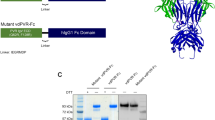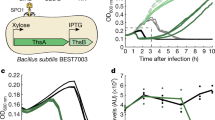Abstract
Cytokinins are plant hormones that play an integral role in multiple aspects of plant growth and development. The biological functions of cytokinins in mammalian systems are, however, largely uncharacterized. The naturally occurring cytokinin zeatin riboside has recently been demonstrated to activate the mammalian adenosine A2A receptor, which is broadly expressed by various cell types including immune system cells, with the activation of the A2AR playing a role in the regulation of cells involved in both innate and adaptive immunity. We show for the first time that zeatin riboside modulates mammalian immune system activity via an A2AR-dependent mechanism. Specifically, zeatin riboside treatment induces the production of cyclic adenosine monophosphate (cAMP) by T lymphocytes and inhibits the production by CD3+CD4+ T cells of interferon (IFN)-γ, IL-2, tumor-necrosis factor (TNF)-α, IL-4 and IL-13, and the production by CD3+CD8+ T cells of IFN-γ, IL-2 and TNF-α. Additionally, the upregulation of CD25, CD69 and CD40L by activated T lymphocytes is modulated by zeatin riboside. Zeatin riboside treatment also potently inhibits thioglycollate-induced peritoneal leukocytosis. The immunomodulatory activities of zeatin riboside are blocked by co-treatment with the selective A2AR antagonist ZM241385. These data suggest that zeatin riboside possesses therapeutic potential as a mammalian immunomodulatory agent.
This is a preview of subscription content, access via your institution
Access options
Subscribe to this journal
Receive 12 digital issues and online access to articles
$119.00 per year
only $9.92 per issue
Buy this article
- Purchase on Springer Link
- Instant access to full article PDF
Prices may be subject to local taxes which are calculated during checkout


Similar content being viewed by others
References
Mok DW, Mok MC . Cytokinin metabolism and action. Annu Rev Plant Physiol Plant Mol Biol 2001; 52: 89–118.
Honma Y, Ishii Y . Differentiation of human myeloid leukemia cells by plant redifferentiation-inducing hormones. Leuk Lymphoma 2002; 43: 1729–1735.
Rattan SI, Clark BF . Kinetin delays the onset of ageing characteristics in human fibroblasts. Biochem Biophys Res Commun 1994; 201: 665–672.
Verbeke P, Siboska GE, Clark BF, Rattan SI . Kinetin inhibits protein oxidation and glycoxidation in vitro. Biochem Biophys Res Commun 2000; 276: 1265–1270.
Lee YC, Yang YC, Huang CL, Kuo TY, Lin JH, Yang DM et al. When cytokinin, a plant hormone, meets the adenosine A2A receptor: a novel neuroprotectant and lead for treating neurodegenerative disorders? PLoS ONE 2012; 7: e38865.
Lappas CM, Sullivan GW, Linden J . Adenosine A2A agonists in development for the treatment of inflammation. Expert Opin Investig Drugs 2005; 14: 797–806.
Chehata VJ, Domeier PP, Weilnau JN, Lappas CM . Adenosine A2A receptor activation limits chronic granulomatous disease-induced hyperinflammation. Cell Immunol 2011; 267: 39–49.
Erdmann AA, Gao ZG, Jung U, Foley J, Borenstein T, Jacobson KA et al. Activation of Th1 and Tc1 cell adenosine A2A receptors directly inhibits IL-2 secretion in vitro and IL-2-driven expansion in vivo. Blood 2005; 105: 4707–4714.
Lappas CM, Rieger JM, Linden J . A2A adenosine receptor induction inhibits IFN-gamma production in murine CD4+ T cells. J Immunol 2005; 174: 1073–1080.
Raskovalova T, Lokshin A, Huang X, Su Y, Mandic M, Zarou HM . Inhibition of cytokine production and cytotoxic activity of human antimelanoma specific CD8+ and CD4+ T lymphocytes by adenosine-protein kinase A type I signaling. Cancer Res 2007; 67: 5949–5956.
Bruzzese L, Fromonot J, By Y, Durand-Gorde JM, Condo J, Kipson N et al. NF-kappaB enhances hypoxia-driven T-cell immunosuppression via upregulation of adenosine A receptors. Cell Signal 2014; 26: 1060–1067.
Himer L, Csoka B, Selmeczy Z, Koscso B, Pocza T, Pacher P et al. Adenosine A2A receptor activation protects CD4+ T lymphocytes against activation-induced cell death. FASEB J 2010; 24: 2631–2640.
Murphree LJ, Sullivan GW, Marshall MA, Linden J . Lipopolysaccharide rapidly modifies adenosine receptor transcripts in murine and human macrophages: role of NF-kappaB in A2A adenosine receptor induction. Biochem J 2005; 391: 575–580.
Cronstein BN . Adenosine, an endogenous anti-inflammatory agent. J Appl Physiol 1994; 76: 5–13.
Ohta A, Sitkovsky M . Role of G-protein-coupled adenosine receptors in downregulation of inflammation and protection from tissue damage. Nature 2001; 414: 916–920.
Sullivan GW, Rieger JM, Scheld WM, Macdonald TL, Linden J . Cyclic AMP-dependent inhibition of human neutrophil oxidative activity by substituted 2-propynylcyclohexyl adenosine A2A receptor agonists. Br J Pharmacol 2001; 132: 1017–1026.
Sullivan GW, Lee DD, Ross WG, DiVietro JA, Lappas CM, Lawrence MB et al. Activation of A2A adenosine receptors inhibits expression of alpha 4/beta 1 integrin (very late antigen-4) on stimulated human neutrophils. J Leukoc Biol 2004; 75: 127–134.
Lappas CM, Day YJ, Marshall MA, Engelhard VH, Linden J . Adenosine A2A receptor activation reduces hepatic ischemia reperfusion injury by inhibiting CD1d-dependent NKT cell activation. J Exp Med 2006; 203: 2639–2648.
Lappas CM, Liu PC, Linden J, Kang EM, Malech HL . Adenosine A2A receptor activation limits graft-versus-host disease after allogenic hematopoietic stem cell transplantation. J Leukoc Biol 2010; 87: 345–354.
Naganuma M, Wiznerowicz EB, Lappas CM, Linden J, Worthington MT, Ernst PB . Cutting edge: critical role for A2A adenosine receptors in the T cell-mediated regulation of colitis. J Immunol 2006; 177: 2765–2769.
Author information
Authors and Affiliations
Corresponding author
Ethics declarations
Competing interests
The authors declare that there are no conflicts of interest.
Rights and permissions
About this article
Cite this article
Lappas, C. The plant hormone zeatin riboside inhibits T lymphocyte activity via adenosine A2A receptor activation. Cell Mol Immunol 12, 107–112 (2015). https://doi.org/10.1038/cmi.2014.33
Received:
Revised:
Accepted:
Published:
Issue Date:
DOI: https://doi.org/10.1038/cmi.2014.33
Keywords
This article is cited by
-
Evolution of the Cytokinin Dehydrogenase (CKX) Domain
Journal of Molecular Evolution (2021)
-
Integrated structural and functional analysis of the protective effects of kinetin against oxidative stress in mammalian cellular systems
Scientific Reports (2020)



